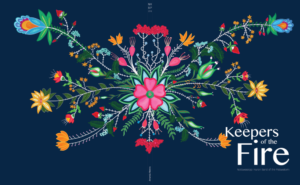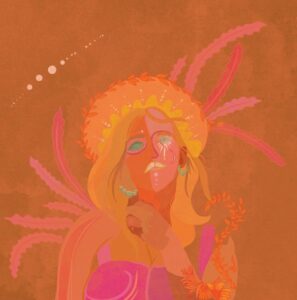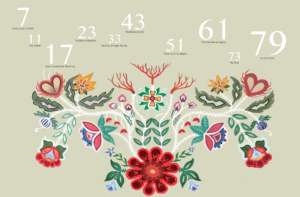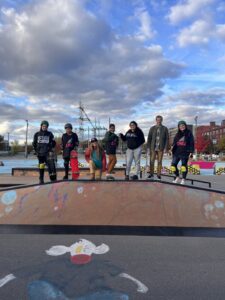For many, Thanksgiving marks a time for family, big turkey dinners and celebration. For Native Peoples, Thanksgiving isn’t a day of celebration, it’s a national day of mourning, a reminder of the genocide and violence that their people experienced almost 400 years ago. In honor of Indigenous People’s Heritage Month, we want to make space for one of the stories from our own staff members, Amanda Westra. Through her artwork, Amanda has been not only reconnecting herself to her ancestry, but inspiring youth to understand theirs.
“Knowledge is power. I find honoring my ancestry drives the work I do at Chill. I hope to be an ally of the youth I serve. I want to help them amplify their purpose, voice, creativity, CHOICE, and personal definition of success. Being an Indigenous women, I struggle with imposter syndrome due to my ancestors being ripped away from their culture. I have been deprived of my culture, and I’m battling a line between my true nature and a place in my current experience. I can see this similar struggle in the youth I serve. I strive to be a role model by giving myself permission to lean into my ancestry and be honest about that difficulty in hopes they can learn to give themselves permission to honor theirs as well. If we truly want to empower our youth, we have to help them build that foundation within themselves. I am proud to be an Indigenous women, but that came with a journey to find the strength in who I am.
My art has been a huge tool and exploration in helping me on that path. I find it empowering to bring to life the artforms of my culture that have been suppressed and forgotten about for years. I love the joy it brings and curiosity. I hope it inspires others to reconnect with the art of the land they live, work and play. I also hope it helps others feel free to express their true nature. That is what drives me to this work, to Chill, and to continuing my path in reacquainting with my ancestors. Chi Miigwech. (Thank you)”
– Amanda Westra
Chill West Michigan recognizes and appreciates the ancestral home of the Anishinaabe, Odawa, Peoria, and Potawatomi peoples, where they currently live, play and teach on.




